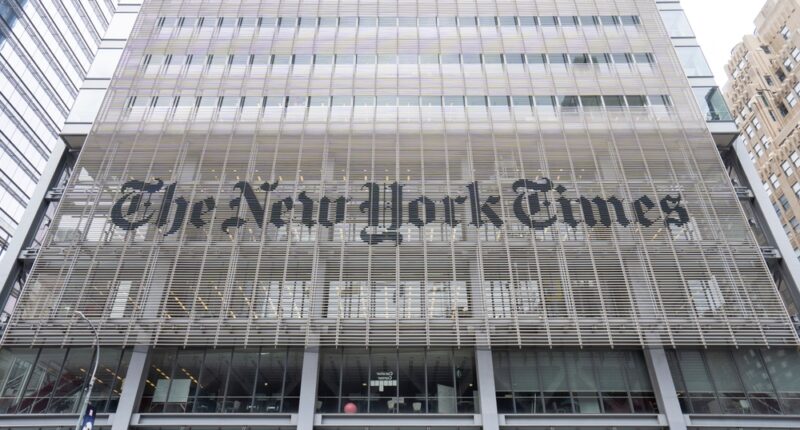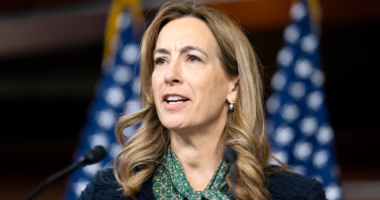Share this @internewscast.com

A federal court has dismissed President Trump’s original $15 billion defamation lawsuit against the New York Times, citing that the suit was being used as “a protected platform to rage against an adversary.” The case also involved three journalists from the Times and Penguin publishing.
In response, Trump has revised his legal action in a Florida federal court, targeting two articles from the Times and a book by Penguin, authored by two Times journalists, for allegedly containing false and defamatory content. This lawsuit may open up extensive investigative opportunities for the Times, as proving truth is a key strategy in defamation cases.
Having previously defended the Albuquerque Journal in defamation suits, I witnessed firsthand the powerful defense of truth. The Journal faced legal challenges after publishing articles revealing organized crime’s penetration into Southwestern U.S. government sectors, following the murder of Arizona reporter Don Bolles by the mob. The Journal employed a vigorous truth defense to demonstrate the plaintiffs’ actual mob connections.
While Trump seeks a staggering $15 billion in damages, the Times holds significant leverage through its truth defense strategy. By making sweeping defamation claims, Trump has inadvertently invited a thorough examination of his history. The Times and fellow defendants are entitled to gather evidence and testimonies from Trump and other relevant parties, offering a wealth of investigative avenues.
Among Trump’s contested statements is the assertion that “[t]he producers [of the Television show “The Apprentice”] would also need to invent a version of Donald Trump that did not actually exist — measured, thoughtful and endlessly wealthy.” To validate this claim, subpoenas could target MGM, the owner of unseen “The Apprentice” outtakes, to uncover footage that was never broadcast.
Insiders from “The Apprentice” have alleged that these tapes reveal Trump making inappropriate and abusive remarks, including racial slurs, and depict him in a manner contrary to his on-screen persona. While MGM is contractually obliged not to release these tapes, such agreements can be bypassed by subpoenas in defamation defenses.
Trump opens wide the door to discovery in his claim that the title of a 2024 New York Times article, “For Trump, a Lifetime of Scandal Heads Toward a Moment of Judgment” is defamatory. This alleged defamation gives the Times carte blanche to dig up every Trump scandal.
Notably, this could include scandals not yet explained. For example, we know that in 2004 Trump bought the former Maison de L’Amitié in Palm Beach for $41.35 million. In 2008, Trump sold the property to Russian oligarch Dmitry Rybolovlev for $95 million, more than twice what he paid for it. Was this a money laundering scheme? Was there any connection to Jeffrey Epstein who Trump bid against for the property? — all fair game for defamation discovery.
Trump’s complaint also alleges as defamatory a variety of financial transactions that the Times reported as tax frauds. Included most notably is the allegation that Trump was involved in a scheme “to funnel some of” his father’s “cash to” himself and “his three siblings” “designed to evade the gift and estate taxes” through a sham company created for that purpose. This and similar transactions are proper subjects for discovery, including not yet released financial records and Trump tax returns.
The Times, like most media organizations in defamation cases, will be tempted to follow standard practice and immediately ask the court to dismiss Trump’s complaint under the Supreme Court’s well-established holding in New York Times vs. Sullivan. That precedent permits the press to report on public figures so long as it does not act with malice or reckless disregard of the truth.
There will, however, be plenty of time to bring a motion to dismiss. The Times, like Harvard University, should use the gift of Trump’s lawsuit to stand up for the First Amendment’s right to a free press. The Times should use it affirmatively to conduct an aggressive investigation into Trump’s unsavory past. News organizations like ABC, CBS and the Washington Post have already appeased Trump with multi-million-dollar settlements. The American public now needs a media hero, which will not back down when Trump challenges its right to print the truth.
Akerman was formerly an assistant special Watergate prosecutor and an assistant U.S. attorney for the Southern District of New York.
















